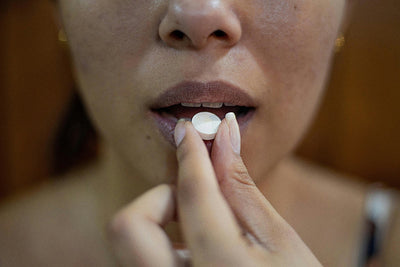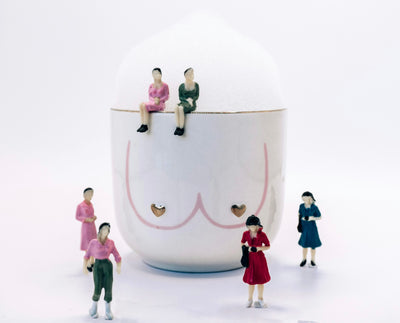Can a Breastfeeding Mom's Diet Trigger Colic?
You know it when you see it: the gut-wrenching, hours-long crying of an infant that appears to be in pain...COLIC. Anyone who’s had a baby with colic (or been around one) can testify to the stress it causes.
Many new mothers may ask themselves, "Is my diet causing this?" Especially if you're nursing! Perhaps it's the dark chocolate bar you munched on or the creamer you added to your cup of coffee that's the culprit?! To find the answer, we need to understand what colic is first…
What is Colic?
Colic is poorly understood but is classically defined by doctors as an unknown condition causing a healthy baby to cry for more than three hours per day, three days per week and lasting more than three weeks.
It typically starts at two weeks of life, peaks at six weeks and then resolves by three to four months.
What Causes Colic?
There are many theories that try to explain the cause of colic. In truth, it's usually provoked by a combination of too much stimulation plus too much quiet (too little 4th trimester rhythmic calming). During the first 4 months, all babies - especially fussy ones - do best with hours and hours of holding, rocking, shushing…like they enjoyed in the womb.
In addition, about 10% of the time a baby’s screams can be set off by a formula allergy (dairy or soy) or acid reflux.
Can a Breastfeeding Mom's Diet Trigger Colic?
When a baby is intensely crying for no apparent reason, it’s natural for a new breastfeeding mom to question if what she’s eating is affecting her child.
Sometimes that is exactly the case! Within less than an hour, tiny molecules of the food you eat start drifting into your milk. And, if your baby is sensitive or allergic to those foods, crying may ensue. For this reason, moms are often advised to cut out common allergens in their diet (like milk and soy) or in more extreme cases go on an elimination diet. When it works, improvement is typically seen within 3-5 days.
Foods that are tough to digest and typically produce gas in adults are the first foods to avoid. Some examples are:
|
EXCESS FRUCTOSE |
FRUCTANS |
LACTOSE |
GOS |
POLYOLS |
|
Apples |
Custard |
Custard |
Chickpeas |
Apples |
|
Boysenberry |
Apples |
Condensed milk |
Legume beans (e.g. baked beans, kidney beans, borlotti beans) |
Apricots |
|
Figs |
Nectarines |
Dairy desserts |
Lentils |
Blackberries |
|
Mango |
White peaches |
Evaporated milk |
Pistachio nuts |
Longon |
|
Pear |
Persimmon |
Ice cream |
Cashews |
Lychee |
|
Tamarillo |
Tamarillo |
Milk |
Nashi pears |
|
|
Watermelon |
Watermelon |
Milk powder |
Nectarines |
|
|
Asparagus |
Artichoke |
Unripened cheeses (e.g. ricotta, cottage, cream, mascarpone) |
Peaches |
|
|
Artichokes |
Chicory |
Yogurt |
Pears |
|
|
Sugar |
Garlic (and powder) |
Plums |
||
|
Snap peas |
Leek |
Cauliflower |
||
|
Fruit juices |
Onion (and powder) |
Mushrooms |
||
|
Dried fruit |
Spring onion (white part) |
Snow peas |
||
|
High-fructose corn syrup |
Barley |
Isomalt |
||
|
Honey |
Rye |
Maltitol |
||
|
Wheat |
Mannitol |
|||
|
Sorbitol |
||||
|
Xylitol |
Studies on Colic and a Breastfeeding Mother's Diet:
A study published by Pediatrics in 2005 followed 90 breastfeeding mothers whose infants were shown to be experiencing colic. Half the group was asked to eliminate allergenic foods from their diet for a week resulting in 74% of the infants experiencing at least a 25% reduction in crying and fussing.
If nothing else is helping, by eliminating common allergens from her diet a nursing mom can sometimes lessen her baby’s colic. Try not to blame yourself if you still can’t seem to work out what is wrong–you may be doing all the right things and your baby still experiences colic. There is still a lot we don’t understand about the condition so it is important to be kind to yourself during this often stressful situation.
For more support on your breastfeeding journey, download the Emily’s Care app where you can ask any of your breastfeeding related questions to our virtual lactation consultant, keep track of your mental wellness and much more.






